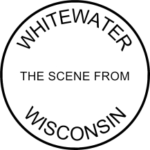 In 2010, the City of Whitewater considered an ordinance to publish video recordings of principal public meetings. The first reading of the proposal was in August, and a second reading led to its approval in September. One may find the ordinance at Whitewater, Wisconsin, Municipal Code, Chapter 2.62 (Whitewater Transparency Enhancement Ordinance).
In 2010, the City of Whitewater considered an ordinance to publish video recordings of principal public meetings. The first reading of the proposal was in August, and a second reading led to its approval in September. One may find the ordinance at Whitewater, Wisconsin, Municipal Code, Chapter 2.62 (Whitewater Transparency Enhancement Ordinance).
This ordinance did not (and could not) supersede Wisconsin’s Open Meetings Law Wis. Stats. §§ 19.81 – 19.98. Instead, it advanced Whitewater farther in the direction of open government. The ordinance’s adoption was a good, in and of itself. (The ordinance applied to the city, not to our school district, but it set the right example for all the area.)
Adoption of the ordinance was not without opposition, sadly. Indeed, some local notables came forward with any number of weak excuses why televised meetings were a bad idea. See Municipal Openness and Transparency, and Their Alternatives and Municipal Openness and Transparency, and Their Alternatives (Update).
Now, you’ll excuse me if I’ll not adopt the self-serving, typically false practice of claiming to speak for the community as some others in Whitewater do. On the contrary, I’ve been clear from the beginning: I am an emissary of one, so to speak.
Why would I speak this way? Because rights, whether natural or under positive law, work this way: they are rights of people as persons, as individuals.
Each person, as an individual, can benefit from open government, and the benefit comes in awareness of the conduct of those who serve in public roles that are merely instrumental, merely contingent, merely provisional in the authority conferred upon them.
Whether few or many take advantage of the provisions of open government neither expands nor restricts the right of access: it is a right for any and all, of whatever number.
It was good – truly – for Whitewater to expand upon Wisconsin’s open government provisions, but had she not done so, one might have alone relied on the provisions of Wisconsin law – in full – no matter what others in Whitewater thought on the subject. Had our city not done the right thing, one might have exercised one’s rights, albeit with more effort, through state law.
For these years since 2010, we have enjoyed (mostly) good practices in the city and from the public school district in this area.
When a public institution, having long done the right thing, retreats from doing so, it presents to each person, as resident and citizen, both a provocation and a dare. The provocation is the retreat to a lesser standard. The dare seeing what, if anything, someone will do about the imposition of the lesser standard.
Officials must think much of themselves, or little of others, to believe that there will be no reply to significant provocations and dares. Retreat from open government is a significant matter.
Some readers have mentioned this to me, in disappointment. (Thank you for your concerns, sincerely expressed and, one may be sure, attentively heard.) These concerns prompted a November 2017 inquiry, and three-part FW series from December: Twilight, Midnight, and Daylight.
One may be concerned yet confident in reply: in all circumstances, it’s best to proceed deliberately, with sangfroid, and in a particular sequence. See Steps for Blogging on a Policy or Proposal.
More tomorrow.
